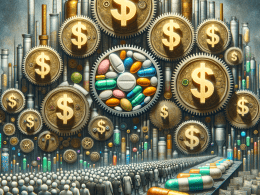Cholesterol is a waxy, fat-like substance that is naturally produced by the liver and is also found in certain foods. It plays a crucial role in the body as it is needed for the production of cell membranes, hormones, vitamin D, and bile acids that aid in digestion.
Cholesterol is transported through the bloodstream in packages called lipoproteins. There are two main types of lipoproteins: low-density lipoprotein (LDL) and high-density lipoprotein (HDL). LDL cholesterol is often referred to as “bad” cholesterol because high levels of LDL can lead to the buildup of plaque in the arteries, increasing the risk of heart disease and stroke. HDL cholesterol, on the other hand, is known as “good” cholesterol as it helps remove LDL cholesterol from the bloodstream, reducing the risk of cardiovascular problems.
Maintaining a healthy balance of cholesterol is important for overall health. When there is an excess of LDL cholesterol or a deficiency of HDL cholesterol, it can lead to an imbalance and an increased risk of heart disease. Factors such as an unhealthy diet, lack of exercise, smoking, obesity, and certain medical conditions can contribute to high cholesterol levels.
To manage cholesterol levels, it is recommended to follow a healthy lifestyle. This includes eating a balanced diet that is low in saturated and trans fats, engaging in regular physical activity, maintaining a healthy weight, avoiding smoking, and limiting alcohol consumption. In some cases, medication may be prescribed by a healthcare professional to help lower cholesterol levels.
Regular monitoring of cholesterol levels through blood tests is essential, especially for individuals with a family history of high cholesterol or those at higher risk of heart disease. By managing cholesterol levels effectively, one can significantly reduce the risk of developing cardiovascular problems and promote overall health and well-being.












